Remembrance Day: Eleven ways to honour your relatives who served
This Remembrance Day, Aussies can get free access to millions of military records. See how you can find and honour your relatives who fought for their country.
SmartDaily
Don't miss out on the headlines from SmartDaily. Followed categories will be added to My News.
Lest We Forget has taken on new meaning for Thomas Smith this Remembrance Day because he once had zero knowledge of his family’s military history to remember.
The truck driver from Granville, in western Sydney, grew up without any information, connection or contact with his paternal grandparents in the UK. Smith’s father had become estranged from his dad in Britain and was sent at the age of six to live at Barnardo’s Orphanage, which eventually moved him and his brother to Australia eight years later.
“I got a bee in my bonnet about trying to find out something about the grandparents I never knew. I’m a fairly unique case in that I knew almost nothing about my paternal family history,” Smith, 37, says, adding he expected to find little with the common surname Smith.

But after tracking down a marriage certificate and logging on to ancestry.com, the floodgates of information opened.
Smith discovered his paternal great-granddad Edward Smith fought as a private in both world wars and was joined in WWII by his son Edgar Lionel Smith (Smith’s grandfather), who was a paratrooper.
Smith says he will pause and reflect on his family’s involvement in past conflicts today at 11am.
“Although I never knew my great-granddad and I never knew anything about him until just recently, the fact that I am his great-grandson and the fact that he not only fought in World War I, but after experiencing the absolute terror and horrors of war and spending years in a trench, he opted to fight again when World War II came about.
“He had nine children and a wife, but on top of all that, he volunteered again to serve his country. It just makes me so incredibly proud. And I really do have a much deeper connection to Remembrance Day.”
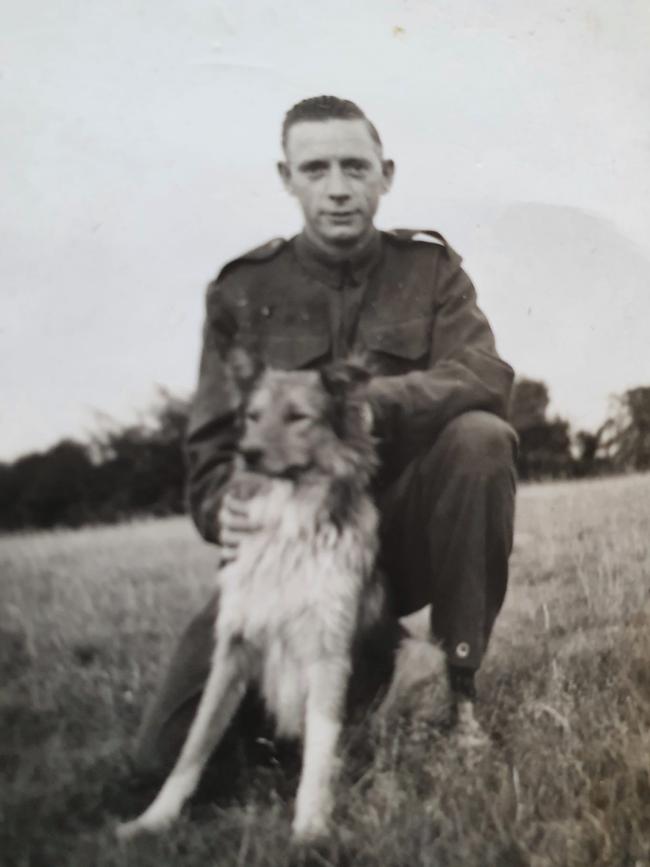
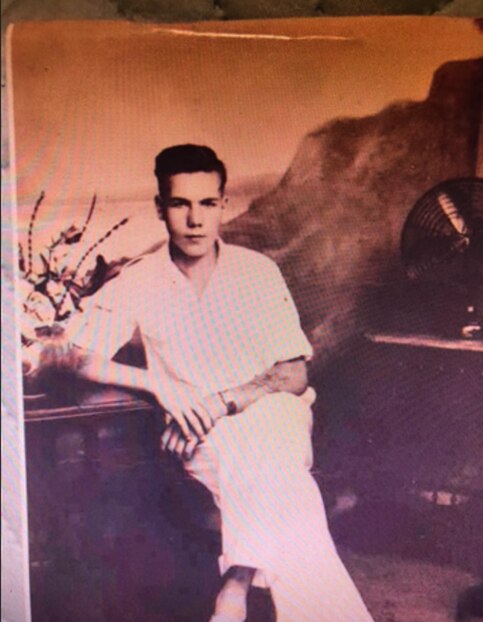
Ancestry’s head of international programming Brad Argent found his way to working at the archive company after helping his father research their family history.
“Dad had made some errors so I elbowed him out of the way and that’s how I got into it. You get fascinated first by collecting names and details and pretty soon you start collecting stories. They go from being names to being people,” Argent says.
He says Ancestry opens its military files free around Remembrance Day to help Australian families make these important connections.
“It helps make a piece of history come alive,” he says.
Argent says with the Ukraine war happening today, it makes some of the historic stories feel more real.
“I think there’s a real benefit in understanding the sacrifices that our ancestors made to get us where we are. Your ancestors put their lives at risk for the things they believed in and because they felt it was in the best interest for future generations.”
Both Argent and Smith recommend all families research their ancestors before the memories of our Diggers fade with their passing.
“Find someone in the family who knows something and ask them about their stories. Because once they’ve gone, they’ve gone for good,” Argent says.
This Remembrance Day, Ancestry is providing free access to millions of military records from Australia, New Zealand and the UK until 11.59pm (AEST) on November 13. For more information, visit ancestry.com.au.
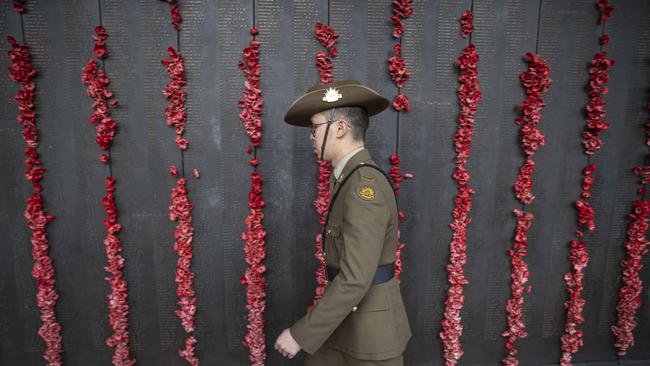
11 WAYS TO HONOUR THEM
1. Speak to veterans or the oldest living generations in your family and record their stories
Ask them what they remember about their service, or whether they have any photos, letters or postcards relating to their life during wartime. Be sure to record your conversation on your phone or take notes, and with veterans, give them time and support to share their stories – often these memories may be difficult to recall so it’s important to give them proper time, emotional support, and comfort to share their stories in their own way.
2 Discover more online about your family’s service.
Make the most of resources such as Ancestry, that enable you to build a family tree online and discover whether members of your family served, and details of their service, through digitised resources such as WWI and WWII service records, Australia, Royal Australian Air Force Personnel Files, 1921-1948 and Australia, Imperial Force Burials At Gallipoli, 1915. This Remembrance Day, Ancestry is providing free access to millions of military records from Australia, New Zealand and the UK until 11.59pm (AEST) on November 13.
3. Attend or host a Remembrance Day service
Whether you’re hosting a community event or personal service, the Department of Veterans’ Affairs (DVA) provides a free online Remembrance Day kitbag with resources like factsheets, flag protocols, music, sample speeches, the Ode of Remembrance and activities for children, to help you plan a Remembrance Day service.
4. Visit a war memorial
Seeing your family member’s name on a war memorial can be a powerful experience, and taking the time to visit a local or national war memorial on Remembrance Day and perhaps leaving a poppy by their name can be a poignant way to reflect on their experience. The Australian War Memorial is a good place to start.
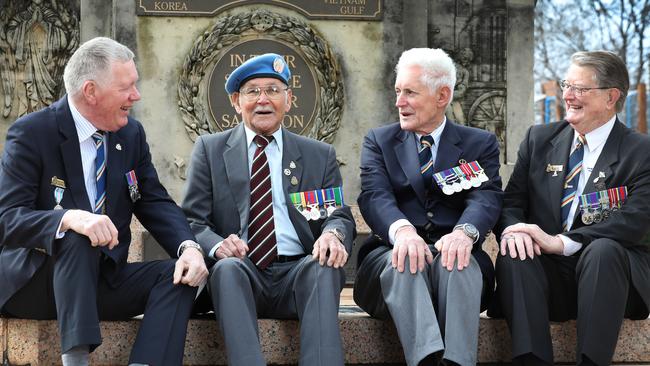
5. Learn more about your ancestors’ medals
If you’re in possession of military medals that belong or belonged to a veteran in your family, or would like to find one, the Remembrance weekend is a perfect time to do so. Resources like Ancestry hold some digitised medal indexes or award rolls (including UK, British Army World War I Medal Rolls Index Cards, 1914-1920 and New Zealand Army Medal Rolls, 1860-1919) and you can also apply for a list of the previously issued awards of deceased relatives who served with Australian forces since WWI on the Department of Veterans’ Affairs website. Additionally, Medals Gone Missing is a useful organisation to help you find and recover your family’s lost war medal that may have been bought, sold and traded around the world.
6. Commemorate your family member’s story in a creative way
Wartime experiences have been documented in a number of artistic mediums, from the illustrations and paintings of Australian war artists such as Ellis Silas or Vaughan Griffin to the creations of war poets like Ethel Campbell and Wilfed Owen, each serving education and historical purposes, as well as commemorating those that served. You could honour your family member in a similar way, writing a poem or letter from their perspective, or drawing or painting your interpretation of their experience.
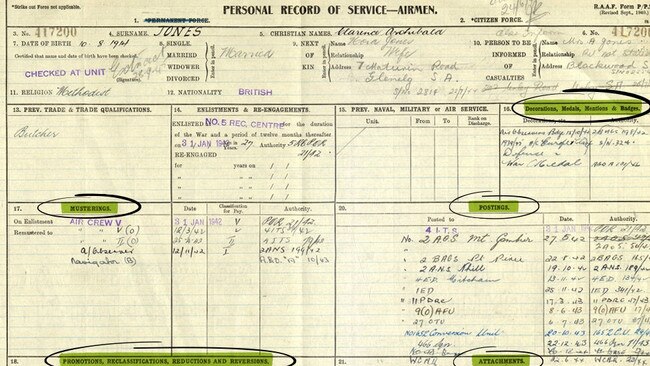
7. Discover the story of your local community
Researching your local community’s involvement in WWI and WWII is a great way to establish a connection with your place of birth or place of residence. Search military records for a location, perhaps where you were born or where you currently live. You may find service or casualty records for personnel who were also born there, or who enlisted in that location. You could also research your local war memorial by searching for all the names on the memorial in Ancestry’s records. Speak to your local family history society too; they may have stories or records relating to local people during both world wars.
8. Visit your local RSL
The Returned and Services League of Australia (RSL) is an organisation that supports those that have served or are serving in the Australian Defence Force. Visiting a local RSL club is a great way to show them your support and many RSLs also have displays of military ephemera (boards of local members who served, photographs, medals, pieces of kit, etc) relevant to their local community. These displays can help you get closer to those that served.
9. Connect with other family members online
Once you’ve spoken to your own living family and searched through records online to find out more about your family members lives’ during the wars, you could also connect with more distant relatives online, who might be able to share more details, or have access to resources from their own research that you might not have seen, such as photos, letters or newspaper clippings. On sites like Ancestry, you can search through other people’s family trees (if they have made them public) to see if the person you’re looking for shows up there. There’s also a function that allows you to message the owner of the family if you want to find out more.
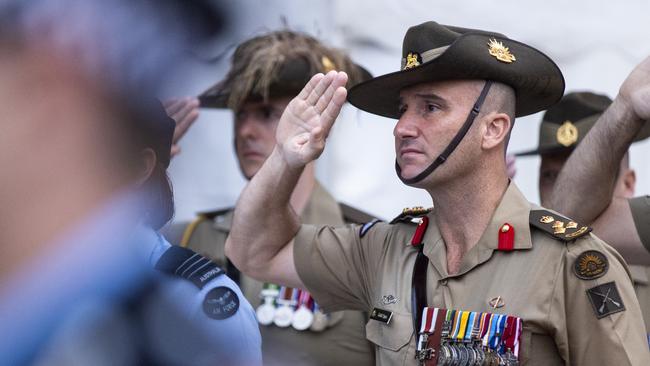
10. Find your family in the newspaper
Old newspaper archives like Newspapers.com or Trove can help you discover what life was like during wartime or find out more about the lives of veterans in your family who served. They often contain references to men and women who joined up, and sometimes articles will be accompanied by photos of the person in uniform or extracts of their letters or quotes. They are a great resource for noting when someone was wounded, taken prisoner or killed in action. Sometimes, the article will contain detail not found elsewhere - e.g. where someone was employed, the sports they played, or details of their final moments.
11. Use culture to learn more about your family’s connections to wartime.
Reading books, listening to podcasts or watching documentaries, films and TV shows can be an immersive way to learn more about the realities of those that served. For example, if you have an ANZAC in your family who served at Gallipoli, you could learn more about the kind of experiences they may have had by reading the book The Anzacs, by Patsy Adam-Smith or watching the documentary Gallipoli (dir. Tolga Ornek, 2005).
Source: Ancestry.com


